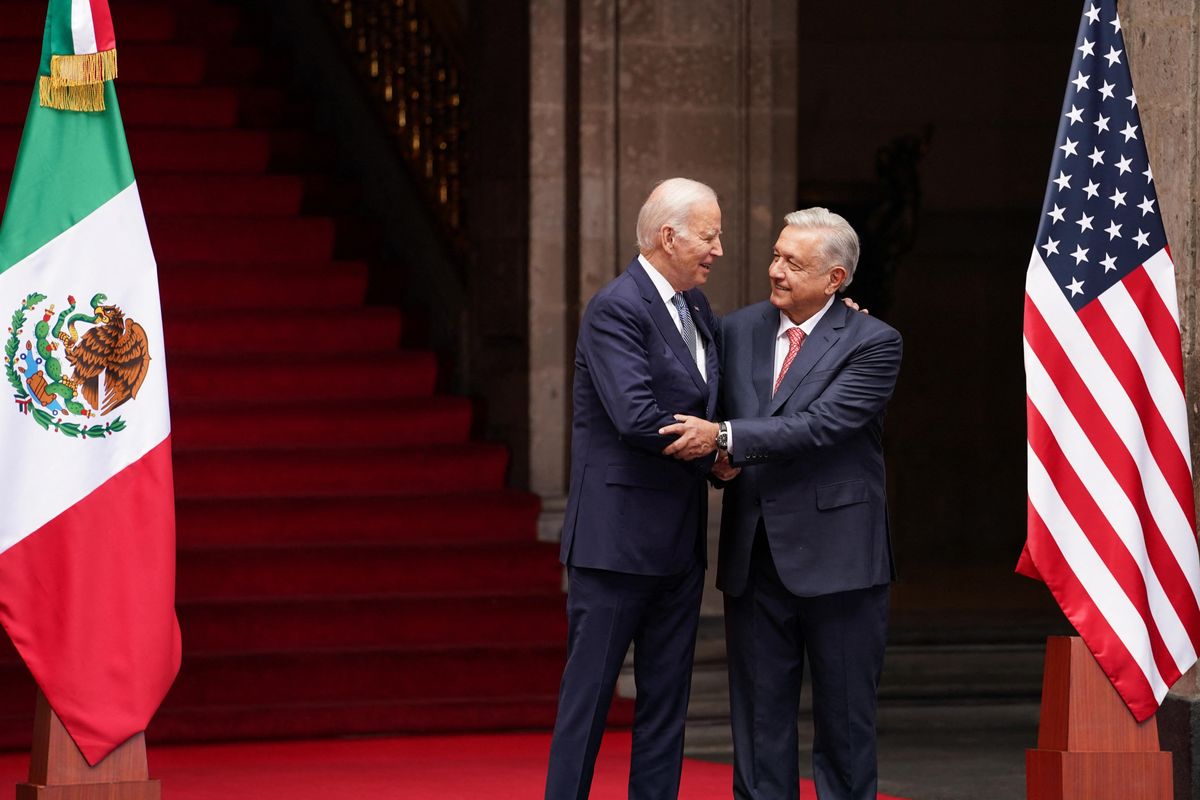What’s on the agenda at the “Three Amigos Summit”?
A meeting of North American leaders known as the "Three Amigos Summit" kicked off in Mexico City on Monday with US President Joe Biden, Canadian PM Justin Trudeau and Mexican President Andrés Manuel López Obrador, known as AMLO, set to meet face-to-face for the first time since Nov. 2021 to chart a path forward on a range of thorny issues. Biden was greeted by his Mexican counterpart a day after making his first visit to the US southern border since becoming president. Indeed, the two have plenty to talk about. While Washington usually calls the shots when it comes to the US-Mexico relationship, AMLO will be looking to earn some concessions from Biden, who is desperately seeking help in dealing with a chaotic situation at the US southern border. This comes after Biden announced in recent days that Mexico had agreed to take in tens of thousands of Nicaraguan, Haitian, and Cuban migrants denied entry into the US in exchange for more work visas for Mexican laborers. Still, the White House might ask for more: While AMLO has agreed to take in an extra 30,000 migrants per month from these countries (plus Venezuela), some 90,000 people from these four places sought to cross the US southern border in November alone. Stopping the drug smuggling trade from Mexico into the US will also be high on the agenda as fentanyl overdoses continue to devastate American communities. Much of the remaining conversation will center on the United States-Mexico-Canada trade deal: Ottawa and Washington have accused AMLO of exerting excessive state control over the energy market. Meanwhile, Canada-US ties have been strained since the Biden administration’s landmark Inflation Reduction Act, passed last summer, included a slew of tax breaks for buying US-made electric vehicles, which Ottawa says will cripple its car manufacturing industry.
Japan’s PM Kishida's seeks security assurances from allies
Japan’s PM Fumio Kishida has kicked off a trip to Europe and North America where he’ll seek to solidify new defense and security agreements with allies just months ahead of a G7 meeting in Hiroshima. This move comes after Tokyo adopted a new security doctrine in December, transitioning away from its pacifist defense posture that's been the law of the land since World War II. Kishida’s first stop was in Paris on Monday and will be followed by stops in Italy, the UK, Canada, and the US, where the Japanese defense and foreign ministers will also meet with their American counterparts. Indeed, Tokyo has left little doubt that its new strategy is aimed at defending itself from military advancements in China – and to a lesser extent North Korea – and is focused particularly on protecting its southwestern islands if China attacks Taiwan. As part of its new defense posture, Japan plans to start deploying long-range cruise missiles capable of hitting mainland China by 2026, improve its intelligence and cyber know-how and double its defense expenditure to 2% of GDP. What’s more, Kishida and Biden will discuss plans to establish a joint command in the Pacific, while in Europe, the joint development of a new fighter jet with the UK and Italy, to be rolled out by 2035, will likely top the agenda. We’re watching to see whether Kishida, facing a sluggish approval rating, gets a domestic boost from this act of international statesmanship, particularly as the Japanese population is increasingly mistrustful of Beijing.

















